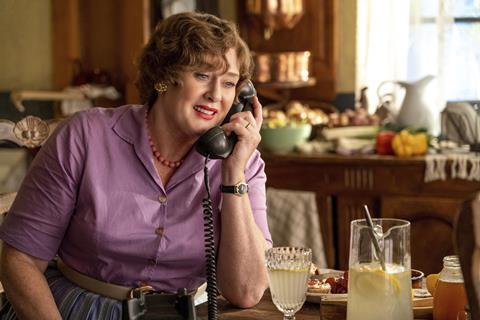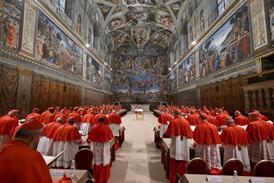“It is such a warm pleasure that it’s easy to simply sink in to its richness”

Julia, Sky Atlantic
“Julia is a uniquely indulgent watch, erudite and gorgeous and heady. It isn’t without its flaws: season two needs more Julia, and it takes its time to work on the winning recipe, but it is such a warm pleasure that it’s easy to simply sink in to its richness, pastry fish and all.”
Rebecca Nicholson, The Guardian
“It’s Julia’s character and the visual feast that is the draw, cameras lingering lovingly over food porn as we bathe in the glorious colours of rustic France and the gorgeous country kitchen of Julia’s co-author Simone ‘Simca’ Beck (Isabella Rossellini). Two great actresses lightly bickering in pinnies over the correct ingredients for a cassoulet is soul-soothing stuff.”
Carol Midgley, The Times
“It is a toothsome treat throughout, with the only caveat being the question of how much Julia you want in Julia. On the one hand, Sarah Lancashire’s performance is starter, main course and dessert, and so when we follow, for example, producer Alice’s (Brittany Bradford) struggles to be heard, we simultaneously long for Lancashire’s beaming visage and ludicrously long vowel-sounds. But then the writers recognise that Julia’s story is also one of post-war America and anyway, you can’t luxuriate over the make-up of a chicken for too long without turning your TV series into a cookery show. Broadly speaking, Julia series two – like great French cuisine – gets the balance right.”
Benji Wilson, The Telegraph
“Though the props and costumes are perfect in their detail, and the cast is top-notch, Julia suffers from a feeling that the script was written by committee. Whenever the story switches to its U.S. characters, the emphasis on political correctness becomes insufferable. In one scene, a publisher’s assistant lectured crime novelist Ross Macdonald (played by Craig Bierko) about his heroine’s ‘privilege’ and ‘trauma’.”
Christopher Stevens, Daily Mail
“Widening the political lens to encompass women’s liberation, race relations, the anti-war movement, and the era’s burgeoning sexual complexity ensures that while the food remains the centrepiece, there are plenty more delicacies on display. This is key to avoiding the show becoming toothless because, at times, its gentle tone and indulgent aesthetics can become somewhat soporific, like the languorous period after consuming a three-course meal.”
Nick Hilton, The Independent





























No comments yet